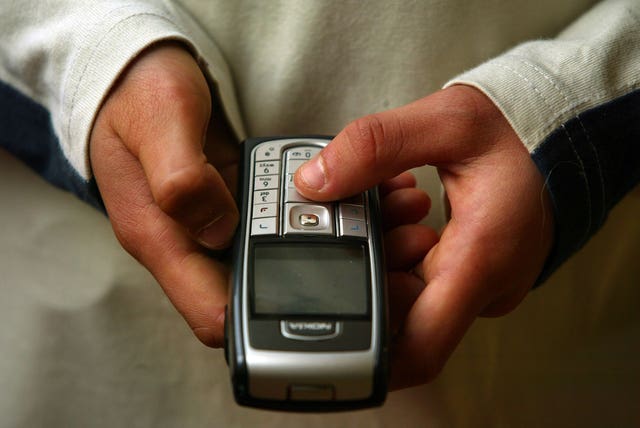Micheal Martin says it is not feasible to ban children from social media
The Tanaiste said that being overly prescriptive does not always work when asked about implementing a ban.

Ireland’s deputy premier Micheal Martin has said it is not feasible to ban children from using social media, but said the government could be stronger in warning of its hazards.
The Tanaiste was asked about whether Ireland would give consideration to social media restrictions for young people following reports that the UK Government was considering a similar move.
The UK’s science minister has publicly said the reports of plans requiring teenagers to get their parents’ permission before setting up an account on sites such as Facebook, Instagram and TikTok is just “speculation”.
Speaking as part of an end-of-year interview, Mr Martin said he wanted to see more examples of schools agreeing a social media “contract” on how to use social media, but said that telling people what to do doesn’t always work.
“There is merit in restricting the use of mobile phones within the school day and within schools themselves,” the Cork South-Central TD said.
“I’ve referenced before a very good example of how in a school in a particular school in Rochestown in Cork, the parents, the pupils and the teachers, facilitated by an educational psychologist, agreed a contract in terms of how to use to social media.
“I would like to see models like that rolled out more, because that’s a more informed, educated approach in the sense that you’re engaging young children in the challenges and opportunities of social media, but in a way that enables them to be decision-makers as well and and also articulate their concerns, to hear their voices.
“Policy on children has evolved over 30 years.
“When I was a minister for health, we developed the first children’s office and people looked at me askance when we actually started surveying children or talking to children, and asking children to give their opinion.
“And we had a children’s Dail na nOg, the children’s parliament, all of that has become normal now, whereas 30 years ago, or 20 years ago, sorry, it wasn’t seen as a normal thing to do.
“So I think we need to be careful about just banning outright access to social media.
“I do believe in terms of concentration and focus, there’s a lot of merit in saying to children in particular, when you’re in school you don’t need a mobile phone, and you don’t need to be accessing social media, and enjoy the school day with your colleagues.
“Again, I don’t see any feasible route to banning children or young people from social media in the modern era, I think there have to be proper checks and balances and over sites and so on, to restrict access to those, yes certainly.
“I think we need to work carefully and sensibly on that agenda.”

“I’m not going to make decisions for parents in that specific, precise way at all.
“Every situation is different, families are different too in terms of children’s development and so forth, but I think we could, in terms of broad guidelines to the public, those are areas where we can help parents to make decisions and take informed decisions.
“We drew up guidelines in the past on bullying, for example, so we need to be stronger in the messaging and communications as to the hazards that can occur, just as we do in terms of food and in other areas.
“But again, very often being overly prescriptive, or directing people or saying to people ‘this is what you should or shouldn’t do’, doesn’t necessarily work.”





